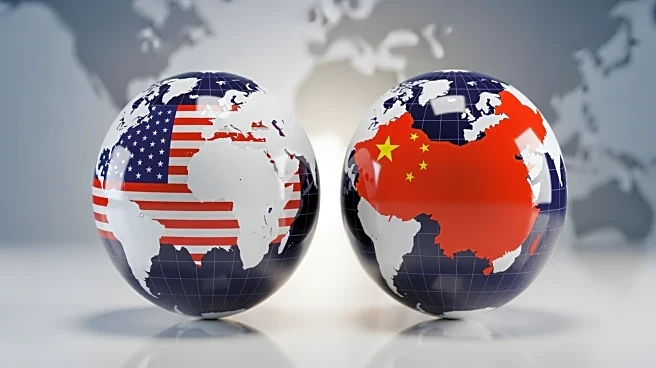What's Happening?
President Donald Trump and Chinese President Xi Jinping have reached an agreement on several trade issues during their meeting at the Asia-Pacific Economic Cooperation (APEC) summit in Busan, South Korea.
This marks their first in-person meeting since 2019. The agreement includes China's commitment to purchase 12 million metric tons of U.S. soybeans this season and 25 million tons annually over the next three years. Additionally, Trump announced a reduction in tariffs on Chinese goods related to fentanyl, following China's efforts to curb trafficking of the drug's precursors. The meeting also resulted in a temporary pause on China's export controls on rare earth minerals, which are crucial for various high-tech applications.
Why It's Important?
The trade truce between the U.S. and China is significant as it addresses key areas of economic tension between the two nations. The agreement on soybeans is particularly crucial for American farmers who have been financially impacted by the trade dispute. The reduction in fentanyl-related tariffs could ease some of the economic strain on Chinese goods, potentially benefiting U.S. consumers. The pause on rare earth export controls is vital for the tech industry, which relies heavily on these materials. This development could stabilize markets and improve bilateral relations, impacting global trade dynamics.
What's Next?
The implementation of the agreements reached at the summit will be closely monitored by both governments. The U.S. and China will likely continue negotiations to solidify these commitments and address any remaining trade issues. The reduction in tariffs and the soybean purchase agreement may lead to improved economic conditions for U.S. farmers and businesses. However, the long-term impact on the global supply chain and geopolitical relations will depend on the adherence to and expansion of these agreements.









